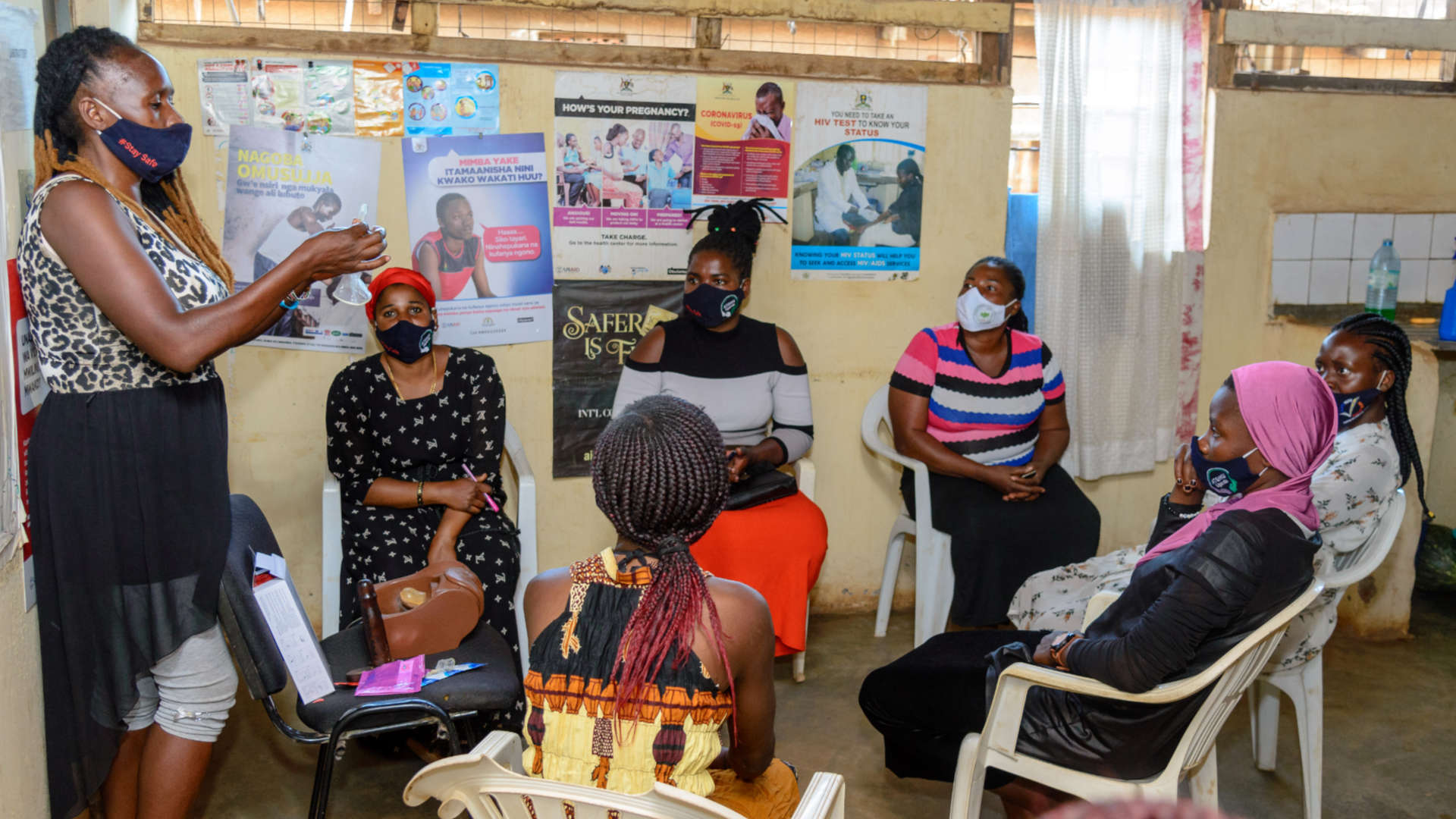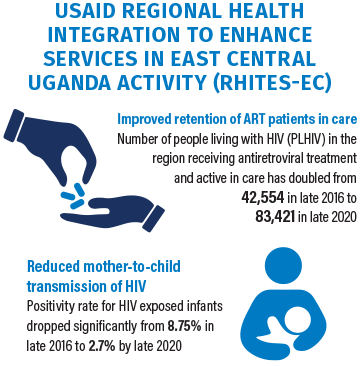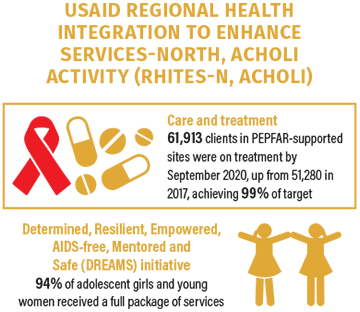
HIV/AIDS
A key population peer leader provides sex workers with education on safe sex practices and benefits of PrEP for HIV prevention at ATGWU Drop-in Centre – a clinic dedicated to providing health services – in Busia District, Uganda. Photo credit: USAID RHITES-EC
HIV/AIDS
URC has helped countries in Africa, Asia, Eastern Europe, and Latin and North America implement HIV programs to create better health outcomes for underserved and vulnerable populations. Working with local health care providers, community leaders, patient advocates, and government officials, we identify gaps in service delivery processes then develop and scale up best practices to achieve sustainable improvements. Our programs are designed to advance the US Global Health Initiative objective of creating an AIDS-free generation.
URC’s HIV work aims to:
- Improve the quality, availability, and consistency of HIV testing and treatment;
- Prevent HIV transmission, including reducing the stigma for getting tested and seeking treatment; and
- Conduct research that helps us to carry out the most effective programs possible.
Through global and bilateral projects, such as ASSIST, HEARD, and HCI, our work has focused on developing local capacity to apply a systems approach and proven quality improvement methods to achieve rapid improvements in HIV/AIDS service delivery and uptake. Our collaborative model has been used to prevent new HIV infections and increase the use and effectiveness of HIV services for key populations and reduce stigma and discrimination towards people living with HIV.
Case Studies
ECHO and EMR: Using Technology to Improve Uganda’s Health Care
Integration and HIV: Client-Centered Care in Uganda and Eswatini
Localization and Scaling Up in Uganda: HIV Testing and Care
URC uses approaches in health system strengthening, research and evaluation, quality improvement, and social and behavior change to identify and address gaps in HIV health services by focusing on strengthening health and community systems and improving the quality of services.
URC leads Department of Defense HIV/AIDS Prevention Programs in Uganda, and Eswatini to reduce the number of new HIV infections and other sexually transmitted infections among military members, their families, and the civilian communities served by these militaries.
URC works with communities to provide treatment and support for people living with HIV and AIDS. We improve health worker knowledge and performance and engage with the key populations most at risk of contracting the virus.
Beth TURESSON, URC SENIOR TECHNICAL ADVISOR – INFECTIOUS DISEASES
Through the scale up of the Nigerien Armed Forces (FAN) antiretroviral therapy program to achieve the UNAIDS 95-95-95 goals in Niger, the DoD Niger URC Project increased the number of military facilities providing HIV testing and care from two to 12, and the number of facilities carrying out index testing from zero to 12. The project also expanded the number of military maternities offering prevention of mother-to-child transmission services from six to 11 sites.
URC also increased the access and utilization of quality HIV health services in the Acholi region of northern Uganda and in East Central Uganda through the USAID RHITES-N, Acholi and USAID RHITES-EC projects. Over the five-year course of the RHITES-EC project, interventions have directly contributed to doubling the number of people actively receiving antiretroviral therapy in 12 East Central districts.







